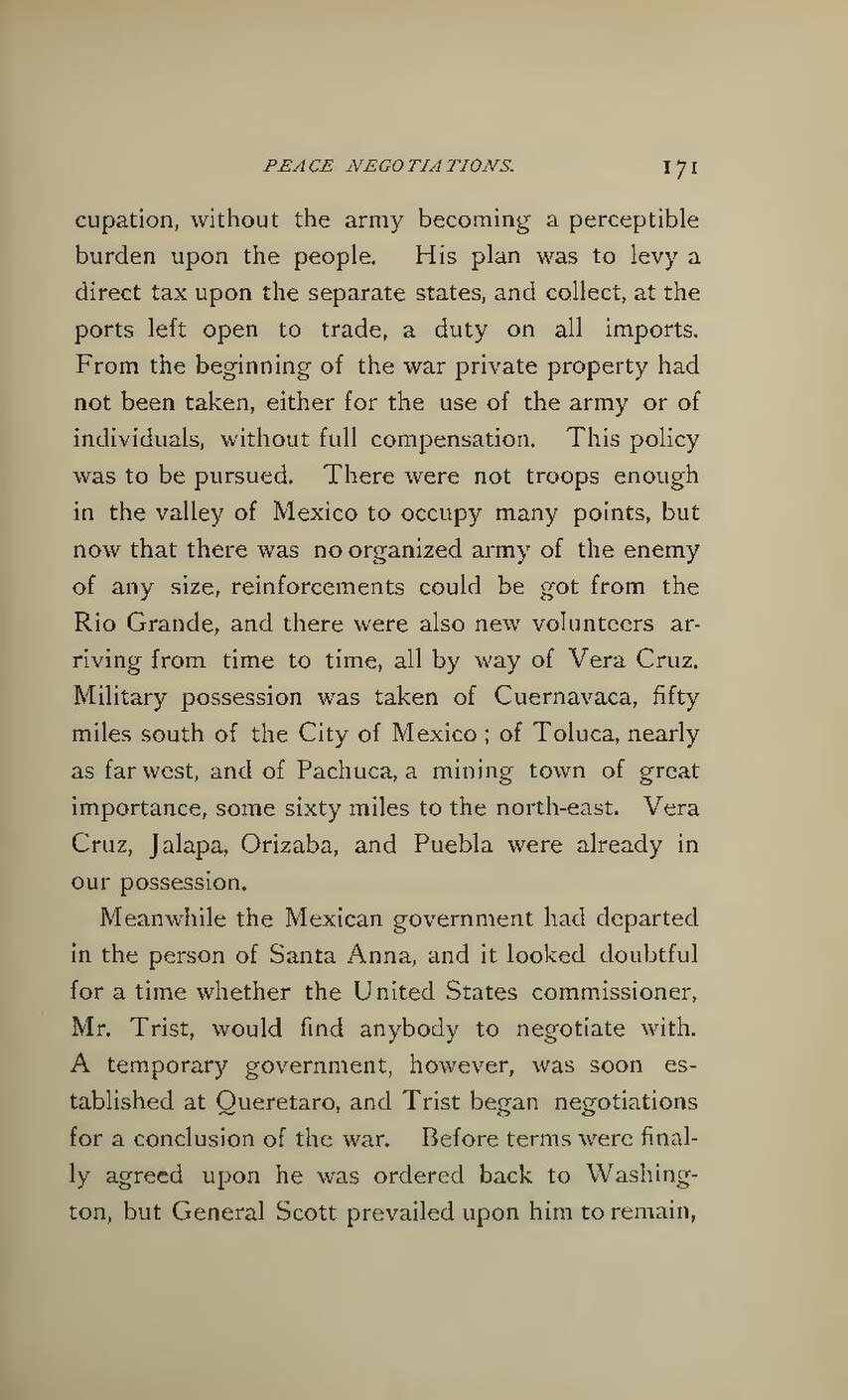cupation, without the army becoming a perceptible burden upon the people. His plan was to levy a direct tax upon the separate states, and collect, at the ports left open to trade, a duty on all imports. From the beginning of the war private property had not been taken, either for the use of the army or of individuals, without full compensation. This policy was to be pursued. There were not troops enough in the valley of Mexico to occupy many points, but now that there was no organized army of the enemy of any size, reinforcements could be got from the Rio Grande, and there were also new volunteers arriving from time to time, all by way of Vera Cruz. Military possession was taken of Cuernavaca, fifty miles south of the City of Mexico; of Toluca, nearly as far west, and of Pachuca, a mining town of great importance, some sixty miles to the north-east. Vera Cruz, Jalapa, Orizaba, and Puebla were already in our possession.
Meanwhile the Mexican government had departed in the person of Santa Anna, and it looked doubtful for a time whether the United States commissioner, Mr. Trist, would find anybody to negotiate with. A temporary government, however, was soon established at Queretaro, and Trist began negotiations for a conclusion of the war. Before terms were finally agreed upon he was ordered back to Washington, but General Scott prevailed upon him to remain,
